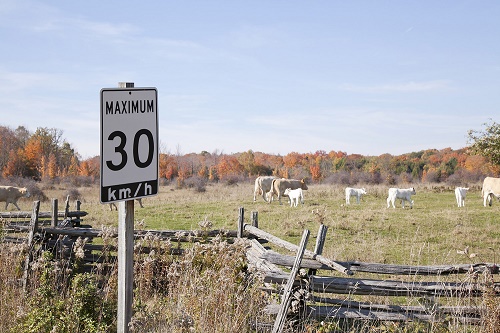Share on socials
 Hon. Kathleen Wynne, Premier
Hon. Kathleen Wynne, Premier
Hon. Bill Mauro, Minister of Municipal Affairs
October 31, 2016
Open Letter
Dear Premier Wynne and Minister Mauro,
Local food. Natural space. Water. Diverse ecosystems and wildlife.
These are only a few of the amazing things the Greenbelt, Niagara Escarpment and Oak Ridges Moraine provide for our province.
Governments of all political stripes have shown leadership in protecting the places we love in in southern Ontario, particularly since the passage of The Niagara Escarpment Planning and Development Act in 1985.
I want to thank your government for building on this legacy with the passage of the Greenbelt Act in 2005 and the release of The Growth Plan for the Greater Golden Horseshoe in 2006.
But we have reached a turning point in Ontario where growth and development pressures are threatening our food, water, natural heritage features and ecosystems. In particular, Ontario is losing farmland at an unsustainable rate, our water resources are under pressure and many species are at risk.
Urban sprawl must stop. We can’t continue to build quarries, highways and subdivisions on prime farmland. We can’t eat gravel or drink asphalt.
Ontario needs to decide how we build smarter, healthier communities for the 21st century. We need strong leadership to say no to developers. It’s time to plan for the end of sprawl, and to permanently protect our remaining farmland, watersheds and open spaces.
The Greenbelt, Niagara Escarpment, Oak Ridges Moraine and Growth Plans are our roadmap to a better future.
I know your government is under tremendous pressure from developers and those who profit from urban sprawl. But we need to put citizens first. I know many citizens groups, environmental groups, and community organizations are asking you to use the coordinated review to strengthen protections for the places we love and depend upon.
That’s why I urge you to start with these conditions as you look to update the plans:
1. Stop urban sprawl by eliminating draft changes that would allow towns and villages within the Greenbelt to expand their urban boundaries. We can create vibrant towns and villages by increasing density – it is not necessary to expand boundaries.
2. Protect what we’ve already protected by not allowing any land swaps or land removals from within the Greenbelt.
3. Grow the Greenbelt to include a comprehensive protected bluebelt of vulnerable water sources and add additional prime farmland and sensitive natural heritage systems.
4. Restrict infrastructure in the Greenbelt including highways, energy generation and transmission, sewage pipes and fuel lines–and address fill issues across the Greenbelt.
5. Create Livable Communities by supporting efficient development in urban growth centres. Establish requirements for building denser cities and aligning growth with existing public transit, water, road and sewer capacity.
6. Don’t undermine protections for the Greenbelt, Niagara Escarpment and the Oak Ridges Moraine with competing provincial policies:
a. Reform the Aggregate Resources Act so that pits and quarries no longer receive priority land use.
b. Fix Ontario’s Permit to Take Water rules to put water for communities and food production first.
c. Reverse changes to the Endangered Species Act that took away protections for endangered species.
7. Overhaul the Ontario Municipal Board to prevent developers and industry from undermining the integrity of all four of the acts under review. It is especially important to shield municipalities from expensive appeals to the OMB that undermine a municipality’s Official Plan.
The City of Guelph, for example, has not been able to proceed with its final amendment to the Official Plan because it remains under appeal to the OMB.
8. Provide municipalities with tools and support to implement the Growth Plan. The Province needs to provide financial support, incentives and additional planning tools to assist municipalities in achieving the goals of both the current and the proposed Growth Plan.
9. Don’t impose one-size-fits-all requirements. Municipalities need flexibility to meet Growth Plan targets in ways that preserve the character and cultural and natural heritage of communities. Municipalities should be empowered to require that developers exceed minimum provincial standards. For example, a municipality that imposes net zero developments for new subdivisions or net zero standards for buildings.
10. Require growth to pay for growth. The Development Charges Act should be further revised to allow for full cost recovery from growth.
Now is the time to strengthen protections for the places we love, the natural heritage we celebrate, and the food and water resources that sustain us.
We need your government to show leadership by saying no to the industry insiders who want to undermine these protections.
We owe it to present and future generations to protect our water, food lands, natural heritage and communities.
Regards,
Mike Schreiner
Leader, GPO